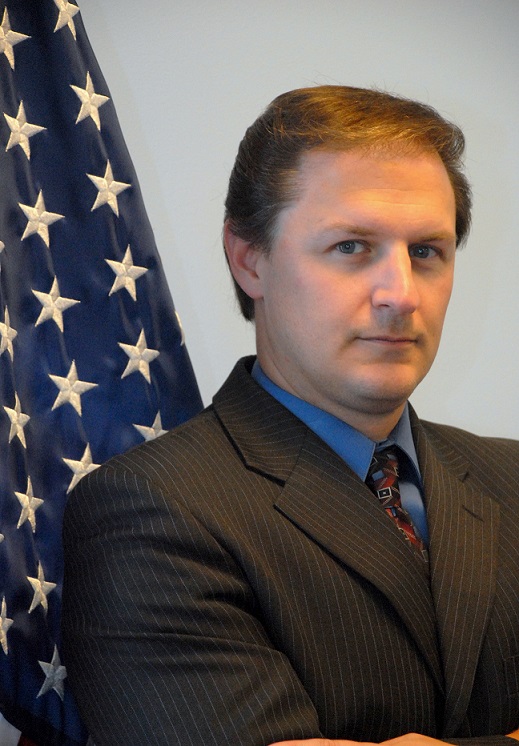Everyone knows there are only two guarantees in life, death and taxes. For credit union executives, however, there are actually three guarantees: Death, taxes and regulatory examinations.
During CUNA's Governmental Affairs Conference in Washington, a group of panelists who know the credit union examination process very well addressed some big regulatory examination issues.
1. Don't be afraid to ask
 Change may be good idea. But when examiners ask you to change your reports to help them analyze your credit union, it may not be such a good idea and, more importantly, it's generally not required.
Change may be good idea. But when examiners ask you to change your reports to help them analyze your credit union, it may not be such a good idea and, more importantly, it's generally not required.
“What we hear consistently from credit unions is, the exam team had me running high and low, doing all these different things, asking me to create specialized reports to help them analyze our credit union,” Ken Ross, EVP/COO for the Michigan Credit Union League in Lansing, said. “They brought me copies of a report from a different credit union, and they thought that it was a good way to look at things. So they wanted me to change my report to look like this other credit union report.'”
Invariably, when the next regulatory examination rolls around, the new team wanted the credit union's report prepared in a different way.
“If might have been a nice thing to do to make the information more digestible for the examiners, but it caused a whole lot of headaches for the credit union,” Ross explained. “Was it required by law? No. Was it (related) to safety and soundness? Probably not. But it was a suggestion the exam team was making that the credit union do something differently in order to accommodate that particular examiner's predictions.”
However, he noted that the way credit unions decide to compile reports for a regulatory examination is strictly a business decision.
“We don't think that there is any circumstance in which you ought to be held punitively responsible for making a business decision,” he said. “You can make business decisions and take the risk of being right or wrong. It's not, in our view, the regulator's role to dictate those things.”
So how can credit unions address this issue?
If examiners are asking your credit union to do something that seems out of the norm, don't be afraid to ask them to cite the specific regulation or rule, Ross advised.
“If you don't get satisfaction, elevate it; respectfully, but elevate it,” he said. “Don't be afraid to talk to the examiner in charge. If you don't get satisfaction there talk to the regional supervisor and work your way up to the head of the agency.”
An examiner who remains unchallenged is every supervisor's nightmare, Ross said, because it could mean they are being poorly represented by an examiner who may need to retire or who may need an attitude adjustment.
“Take advantage of that opportunity to tell them what is happening in the field because they can't take action based on rumor,” he said. “They have to hear it.”
Nevertheless, Ross acknowledged it does take courage to speak up because credit unions will have to trust they won't have a target on their back going forward.
2. Changing the law
 Following the credit crisis in 2007, regulatory examinations began to change for many state chartered credit unions in Illinois.
Following the credit crisis in 2007, regulatory examinations began to change for many state chartered credit unions in Illinois.
The Illinois Credit Union League fielded a flood of complaints from cooperatives and state chapters about many inconsistencies in the examination process. They also expressed serious concerns about the lack of due process, no follow up from examiners on draft reports, and the heavy handiness of a few examiners during the examination process, according to Patrick Smith, vice president of communications and regulatory affairs for the Naperville-based Illinois league.
What also alarmed league officials was that among the 240 state-chartered credit unions, there were more than 500 DORs outstanding.
“Each credit union had about two DORs, so we thought that was a pretty good basis for some discussions with the department,” Smith said, referring to the Illinois Department of Financial and Professional Regulation.
The IDFPR and league held three roundtable discussions around the state with credit unions. That helped bring the department out of its denial state and realize there were problems that needed to be addressed, he said.
Though it wasn't easy, Smith said the Illinois league's collaborative efforts with state officials led to the development of the framework for new legislation, HB 5342, that was signed into law in the summer of 2014 by Gov. Pat Quinn. The Illinois league heralded it as landmark legislation that is expected to ensure all state regulatory examinations are conducted in a procedurally and substantively consistent manner. The law also clarified the flexibility and authority in a number of credit union operational areas.
“The meat of the legislation is in the rulemaking and with the guidelines,” Smith explained. “We tried to hit on all aspects being very fair to the department and trying to be very fair to our credit unions, and making sure the clarity was there. Our goal was that when an examination is done whether it is (by) examiner A, B, C or D … we shouldn't have wide swings of variations, recommendations or directives.”
According to Smith, the examination complaints have dropped significantly, though he did not quantify the reduction of complaints.
“It seemed like the examiners have taken this to heart,” he said. “There are clear guidelines of how the rules of engagement should be from an examiner's standpoint and it gives due process guidance to credit unions, on the expectations during the exam and what they are empowered with in respect to disagreements.”
3. Clear Communication Channels
 Larry Fazio, director of the NCUA Office of Examination and Insurance, said examiners have been undergoing extensive training to improve the way they communicate with credit unions during the examination process.
Larry Fazio, director of the NCUA Office of Examination and Insurance, said examiners have been undergoing extensive training to improve the way they communicate with credit unions during the examination process.
Additionally, he said, the federal agency is encouraging examiners to maintain an open dialogue with cooperatives throughout the year.
“We want to work with you in developing solutions to problems. We want your solution to be the solution to the problem if it has a really good chance of working,” Fazio said. “We don't want to give you solutions for problems. It's better if you come up with solutions. You know your credit union. You know your membership better than we doTo facilitate that goal, however, Fazio said it's also important for credit unions to be open to and to be willing to communicate with NCUA examiners. The informal appeals process, for example, enables credit unions to resolve disagreements or issues cited in examination reports directly with examiners, their supervisors or with officials at NCUA's regional office.
“Forty percent of the issues that were raised to the regional office were ruled in favor of credit unions,” he said. “It does work. There is a meeting of the minds, and there is a dialogue that happens.”
© Touchpoint Markets, All Rights Reserved. Request academic re-use from www.copyright.com. All other uses, submit a request to [email protected]. For more inforrmation visit Asset & Logo Licensing.







